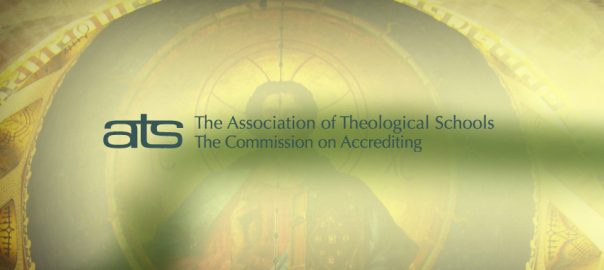This report was compiled by the individuals and institutions that comprised the ATS Peer-Group report on Competency-Based Theological Education and was originally published by ATS as part of their innovations in theological education initiative. To see the full list of participants and the complete report see here.
Competency-based theological education (CBTE) is an educational model that emphasizes: (1) learning more than “seat time,” (2) the mastery of professionally-oriented competencies, (3) well-planned learning activities or assessments (class-based or not, online or onsite) that students may complete at their own paces, and (4) a community of learning where regular and substantive interaction occurs between qualified faculty and students. CBTE programs may be course/credit-based or non-course/credit-based or both. One way to compare and contrast CBTE with more traditional educational models is that the CBTE model holds learning constant while time varies, whereas traditional models hold time constant while learning varies.
As we have progressed through this project, we have come to realize CBTE is more than merely a model to replicate. It is a value system that forms a foundation for a renewed approach to theological education. As evidence of this, two of the ten schools in our CBTE peer group have been approved by the ATS Commission on Accrediting for non-credit/course-based CBTE programs as five-year experiments: Northwest Baptist Seminary in June 2014 and Grace Theological Seminary in February 2017. A third school (Sioux Falls Seminary) operates a CBTE program that is essentially course/credit-based and does not require the approval of ATS, regional accreditors, or the United States Department of Education (DOE). (For a side-by-side comparison of the three schools, see the last page of this report.)
Clearly, schools can deliver programs rooted in a CBTE value system in different ways. At the same time, all three of the programs in our peer group share a similar set of underlying values that form the foundation for their approaches to theological education. This value system calls us to think of theological education not as a transcendent form of education (graduate-level, traditional courses and credits, residency requirements) but as a transcendent function of education. As such, it needs to reinterpret itself from setting to setting to optimally fulfill its function.
We recognize CBTE as a movement that has outgrown “niche” status and rapidly is gaining traction in higher education. More than 600 institutions have some form in place; however, we’re convinced that one size doesn’t fit all, and that prevents our schools from blindly joining the wave. Not only does theological education in general have unique characteristics and requirements, but individual schools within the theological education world have distinct characteristics and requirements. Seminaries that embrace CBTE need to consider its underlying value system and discern if it fits in their contexts. CBTE may require schools to raise the value they place on certain aspects of theological education while lowering the value for other aspects. Member schools also must allow for differences that arise among sister schools that implement CBTE programs.
The goal of our research is two-fold: to help seminaries determine if CBTE is right for them; and to help seminaries design and initiate CBTE programs that support their missions, meet the needs of their constituents, and follow best principles and practices for ATS member schools.
Read the full report here.

